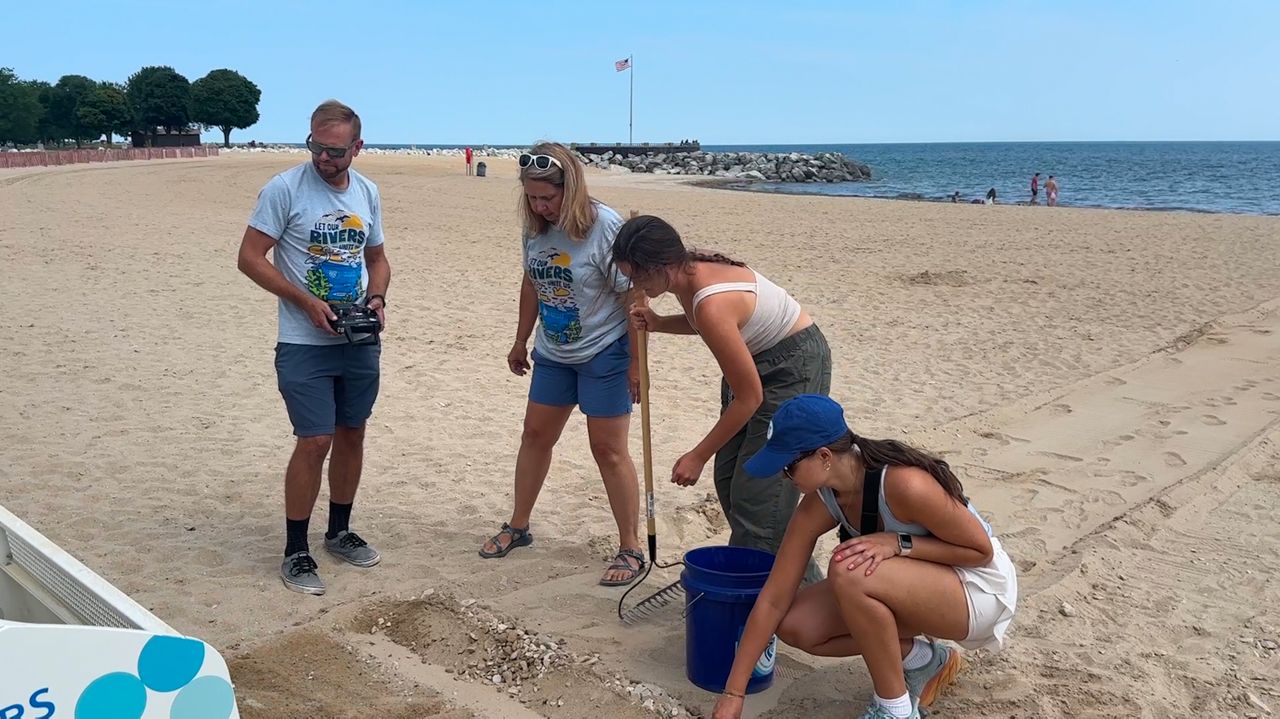MILWAUKEE — Milwaukee Riverkeeper now has two specialized robots that are helping clean area beaches.
Chris Giddens is the water quality assistant. On an August afternoon, Giddens operated the Bebot as it went up and down Milwaukee’s McKinley Beach.
“Once the back tray fills up, we will dump it and then we’ll sort through the types of plastics we’re finding and then we categorize it and collect data on the types of microplastics we are finding on our beaches,” said Giddens.

Giddens said it’s important to reduce the amount of microplastics getting into the lake.
“Most fish in the Great Lakes are found to have plastic in their digestive tracts and if you catch fish and eat them, you end up consuming that plastic but aside from that, plastic can add to the bacteria growth and have some adverse effects in the lake systems,” said Giddens.
Esme Tomaszewski is one of the water quality interns. She helps sort out the trash that the Bebot picks up.
“As you dig a bit underneath, there’s all of these cigar tips and all of these tiny pieces of plastic that I don’t usually see like if you come to the beach and very easily get looked over and buried and then enter the watershed without anyone realizing it,” said Tomaszewski.
They are also using another robot called the Pixie Drone. It cleans up micro plastic from nearby waterways.

Supermarket chain, Meijer, donated both robots to Milwaukee Riverkeeper this summer.
Riverkeeper Cheryl Nenn said these robots also provide an opportunity to educate those curious about the problems of single-use plastics.
“A lot of this microplastic is finding its way into the river. It’s finding its way into the Great Lakes, which are the source of drinking water for about 40 million Americans and Canadians and they are estimating that we are each eating or drinking basically about a credit card sized amount of microplastic per week,” said Nenn.
For Giddens, this is a way to make a difference in his community.
“All of that water in the watershed that drains into Lake Michigan, so this is the end point for our water and obviously I want to do my part to ensure that these amazing natural resources are available and healthy for future generations,” said Giddens.



